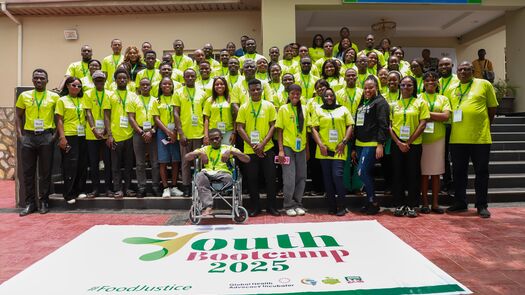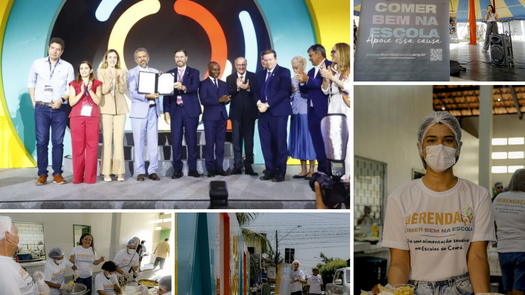November 25, 2025
May 31, 2023
Experts at World Health Assembly Share Best Practices for Using Health Taxes to Prevent NCDs
Alongside this year’s World Health Assembly and in collaboration with the World Health Organization, the Global Health Advocacy Incubator convened a group of global health experts to discuss how advocacy can build the political will for taxes and other fiscal policies that tackle the burden of noncommunicable diseases and improve health at scale. The event, “Using the Power of Taxes to Prevent NCDs” on May 23, featured:
- Lucy Martinez Sullivan, Senior Vice President, Global Health Advocacy Incubator
- Francesco Branca, MD, Director, Department of Nutrition and Food Safety, World Health Organization (WHO)
- Rüdiger Krech, MD, Director, Health Promotion Department, WHO
- Senator Pilar Juliana Schramm Cayetano, Republic of the Philippines
- Andrea Rodríguez, Advocacy Coordinator, FIAN Colombia

Lucy opened the event with reference to the evidence that excise taxes on health harming products reduce their demand and have the potential to reduce the strain on the health system from noncommunicable disease. GHAI’s advocacy model is grounded in the understanding that improving health at scale depends on changing policies and expanding funding—by building advocacy capacity at the national and local levels. Excise taxes and other fiscal policies are a proven way to do this.
Lucy noted that the panelists—representing WHO, elected representatives and civil society—come at the issue from different perspectives, but three points run through all of their messages:
- Health taxes are a double win: they improve health by reducing the consumption of health harming products and they raise funds for governments, which in turn can be used to address public health.
- Advocacy is critical—for building political will to implement health taxes as well as to counter the influence of industries that have a vested interest in blocking or overturning these policies.
- Lessons learned from effective policy adoption and implementation in the tobacco, alcohol and food sectors that can be applied across other sectors to reduce the impact of health harming industries.
Following the opening remarks, the panelists described how advocacy campaigns can mobilize public demand and strengthen political will to pass excise taxes that can support sustainable health systems and deliver positive health outcomes.

Dr. Krech spoke about the international progress being made on alcohol, sugar-sweetened beverage (SSB) and tobacco taxes, and how these health taxes can serve as accelerators for the Global Development Agenda. He also described the ongoing need for more evidence and sustained political will.
Dr. Branca spoke about the evidence of health impact from SSB taxes and the role of taxes as a priority intervention in the technical package of WHO’s Acceleration Plan to STOP Obesity.
Senator Cayetano shared lessons learned from her role leading the passage and adoption of the Sin Tax Law Act of 2012, which reformed and simplified the Philippines’ tax system. As a result of this tax and follow-up laws, the price of cigarettes rose five-fold by 2020, leading to a significant reduction in tobacco consumption. The tax reform also helped pay for Universal Health Insurance and health promotion programs, helping the Philippines Department of Health budget to quadruple in just 4 years.
Ms. Rodriguez spoke about the role of civil society coalitions in mobilizing public opinion and their critical role in holding governments accountable for how money is spent. She also discussed FIAN Colombia’s successful advocacy to introduce front-of-package labeling, taxation on sugar-sweetened beverages and ultra-processed products, and regulation of ultra-processed products in school food environments.
Watch the full event here:



